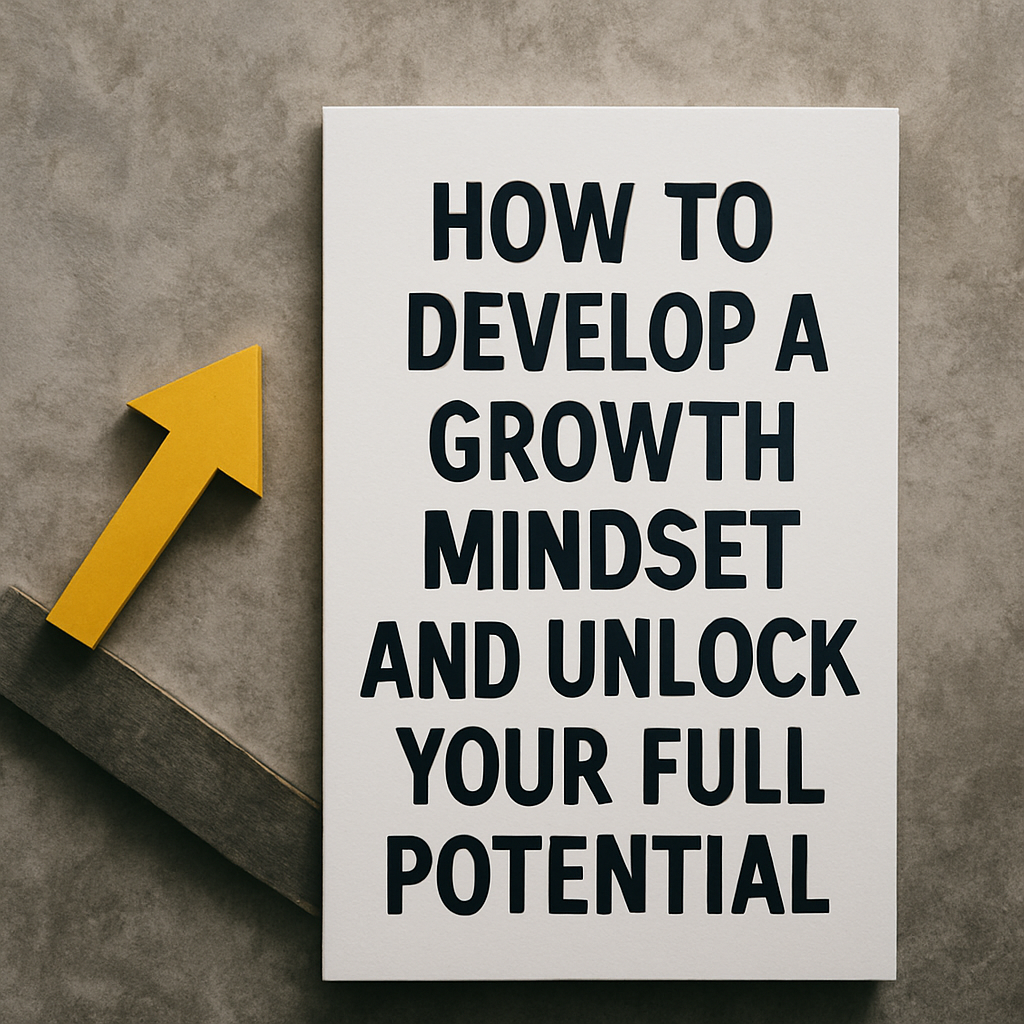Some people see challenges and say, “I’m just not good at this.” Others say, “I’m not good at this yet.” That one word—yet—makes all the difference.
The difference lies in mindset.
In this article, you’ll learn how to develop a growth mindset, why it matters for your personal development, and practical ways to shift your thinking to unlock your full potential.
What Is a Growth Mindset?
The concept comes from psychologist Carol Dweck, who identified two primary mindsets:
- Fixed Mindset: Believing your abilities, intelligence, and talents are static and unchangeable.
- Growth Mindset: Believing your abilities can be developed through effort, learning, and persistence.
With a fixed mindset, failure feels final. With a growth mindset, failure feels like feedback.
Why a Growth Mindset Matters
Having a growth mindset helps you:
- Embrace challenges
- Learn from mistakes
- Stay motivated over time
- Be more resilient under pressure
- Cultivate confidence based on effort—not perfection
- Continuously improve, even when things get tough
This mindset shifts your focus from proving yourself to improving yourself.
1. Notice Your Inner Dialogue
Start by paying attention to how you speak to yourself, especially when facing difficulty.
Fixed mindset says:
- “I’m terrible at this.”
- “I’ll never get better.”
- “This is too hard.”
Growth mindset says:
- “This is tough, but I can learn.”
- “What can I try differently?”
- “I haven’t figured it out yet.”
Awareness is the first step to change.
2. Reframe Mistakes as Learning Opportunities
Failure isn’t the opposite of success—it’s part of the process.
Ask yourself:
- What did this experience teach me?
- How can I apply this next time?
- What skill or habit needs strengthening?
Every mistake becomes valuable when you treat it as feedback, not a flaw.
3. Focus on the Process, Not Just the Outcome
Instead of obsessing over results, focus on your daily effort and consistency.
Try:
- “I’m proud that I showed up today.”
- “I gave my best effort, even if it wasn’t perfect.”
- “Progress matters more than speed.”
This builds confidence from within—and fuels long-term growth.
4. Celebrate Progress, Not Perfection
Look back and recognize how far you’ve come, even if the finish line still feels far away.
Examples:
- “A month ago, I wouldn’t have tried this.”
- “I handled that better than I used to.”
- “I made progress today, and that counts.”
Celebrating progress makes your brain associate growth with satisfaction, not pressure.
5. Surround Yourself With a Growth-Focused Environment
Mindset is contagious.
Surround yourself with people who:
- Encourage experimentation and effort
- Give constructive feedback
- Share their own failures and learning curves
- Celebrate growth, not just success
You’ll start to absorb the mindset of those around you.
6. Replace “I Can’t” With “How Can I?”
Every time you catch yourself thinking “I can’t do this,” flip it to a question:
- “How can I make this easier?”
- “Who can I ask for help?”
- “What skill do I need to work on?”
Questions open doors. Statements close them.
7. Set Learning-Based Goals
Rather than only setting performance goals (“get promoted,” “run a marathon”), also set goals around what you want to learn:
- “Improve my communication skills”
- “Learn how to manage stress effectively”
- “Build confidence in social situations”
This takes pressure off outcomes and brings joy back to the journey.
8. Be Patient With Yourself
Growth is not instant. It’s a cycle of practice, failure, reflection, and adaptation.
Remind yourself:
- “This takes time.”
- “Every step counts.”
- “I don’t have to be perfect to make progress.”
Consistency beats intensity when it comes to mindset.
You Can Learn, Adapt, and Grow—At Any Stage of Life
Developing a growth mindset isn’t about being endlessly optimistic. It’s about believing in your capacity to evolve.
Start here:
- Choose one area where you’ve had a fixed mindset
- Reframe a limiting thought into a growth-based one
- Take one small action that reflects your belief in growth
Your potential is not fixed. Your path isn’t defined by your past. With the right mindset, you are limitless.
